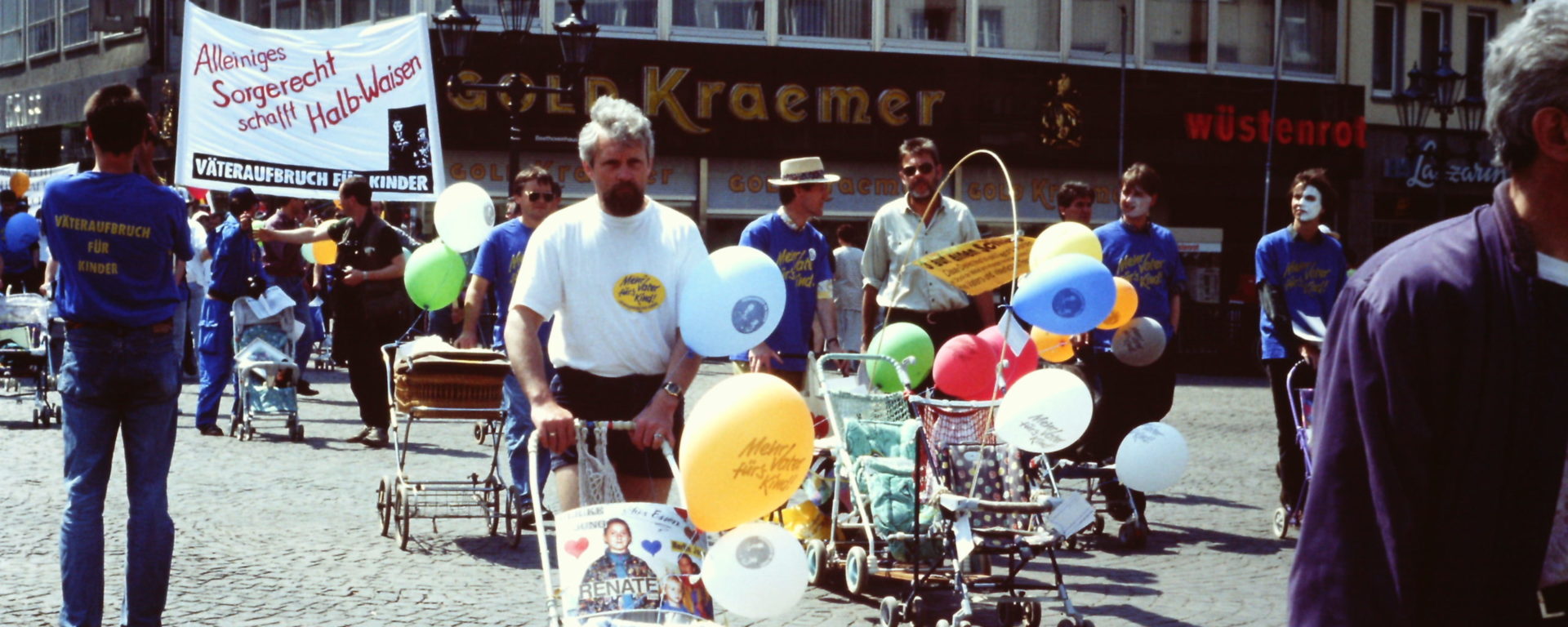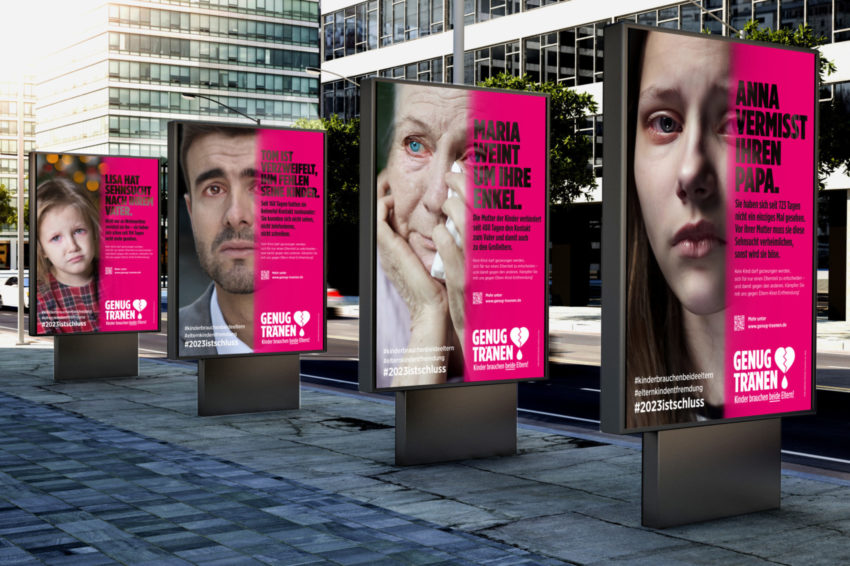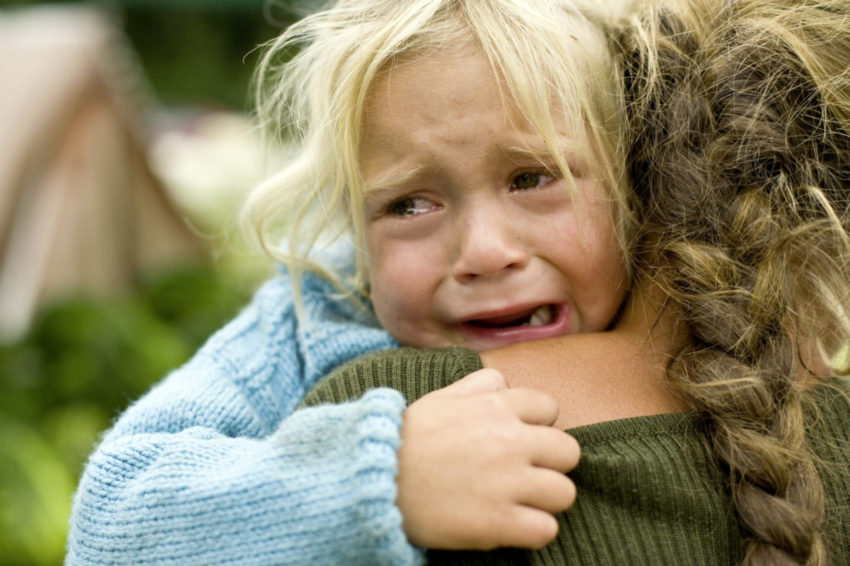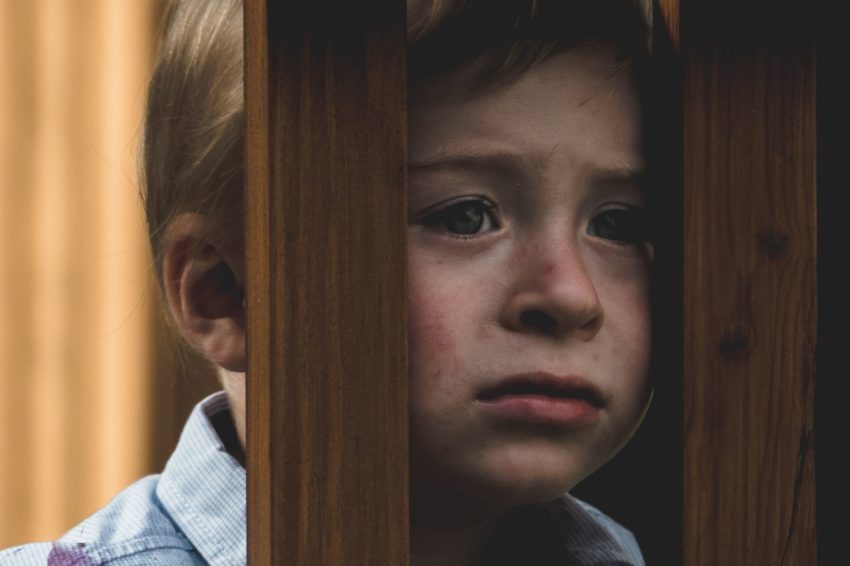1980
Parent-child alienation and alienating behavior is not a new phenomenon—it has been around forever. Parent-child alienation was first discussed and scientifically described in the 1980s by the American child psychiatrist Prof. Richard Gardner. On the basis of 99 cases he examined, he described characteristics and behaviors which he gave the technical term “Parental Alienation Syndrome” (PAS).
Prof. Gardner defined three main characteristics that, according to his findings, must be present for PAS to exist:
- Denial or denigration of a parent that reaches campaign proportions, that is, on an ongoing basis and not just as an occasional episode.
- The hostile attitude of rejection is irrational and the alienation is not an appropriate response to the rejected parent's behavior. It is not based on actual negative experiences with the rejected parent.
- It is a partial result of the influence of the alienating parent and/or other significant others.
In addition, he defined eight symptoms that can be observed in PAS cases, but not all have to be observed in every case:
- Unfounded rejection and smear campaigns
- Absurd rationalizations (unjustified, absurd justifications for rejection attitudes).
- Absence of normal ambivalence (idealizing of one parent, demonization of the other, strong black-and-white thinking).
- Reflexive partisanship for the programming parent.
- Extending the rejection to the entire family and the environment of the rejected parent.
- The phenomenon of “own opinion” (emphasis on “own opinion” and “own will”).
- Denial of guilt about cruelty to the alienated parent (the alienated parent is rejected outwardly in a "cold" and unemotional manner).
- Adoption of "borrowed scenarios" (same allegations as those made by the alienating parent, often without the child witnessing them).
Prof. Gardner's publications led to heated debates as to whether or not PAS existed. He was heavily criticized because his work showed significant methodological errors in the assessment of causalities. In addition, there was criticism of the assumption that it would be a syndrome, i.e. a disease. More and more scientists devoted themselves to parent-child alienation. A broad consensus soon emerged that parent-child alienation is not a "syndrome". Prof. Gardner's symptoms, like his three main characteristics, were in fact always observed and still represent the basic theory of parent-child alienation today Term "Parental Alienation" gained wider recognition and usage.
1998
In the German-speaking area, the discussion intensified at the end of the 1990s. This was accompanied by the first publications and scientific work on parent-child alienation. One of the first publications is the 1998 The Parental Alienation Syndrome - PAS in Der Amtsvormund legal Peter Koeppel for the first time detailed parent-child alienation from a psychological point of view and classified it legally, also with a view to US legal developments. The essay ends with a concluding remark by the authors, which has lost none of its topicality: “The Parental Alienation Syndrome (PAS) presented here, as well as the judicial and, in some cases, already legal answers to it, come exclusively from Anglo-Saxon countries. The children living in Germany differ from the children from countries with Anglo-Saxon legal culture in their culturally determined socialization, but not in their basic emotional need for a love-based, lifelong relationship with both parents. Thus, the Gardner et al. The knowledge gained can be transferred to our country. Here, too, the law and case law should protect children more consistently than before from suffering lasting damage to their development as a result of PAS.”
1999
In 1999, Prof. Uwe Jopt gave the lecture A two-phase model for PAS . He dealt in detail with the discussion about PAS, which was highly emotional. Prof. Jopt differentiated PAS from other forms of childlike rejection and reactions. The helplessness of the helper system in dealing with PAS was addressed. Fateful wrong decisions are often made, which are based on the child's unconditionally expressed will, but in such cases are a manipulated child's will, which must not be followed unconditionally to protect the children.
2002
The Düsseldorf psychologist and sociologist Dr. In 2002, Walter Andritzky published an article entitled Behavioral patterns and personality structure of alienating parents: Psychosocial diagnostics and orientation criteria for interventions , which dealt intensively with the recognition of alienating behavior, the manifestations of personality traits in the parents and the resulting behavior of children. At the same time, he published an article in Deutsches Ärzteblatt entitled Don't instrumentalize , which strongly emphasized that alienating parents often influence professionals, doctors, and therapists to support alienating parents.
The Würzburg specialist in psychiatry, neurology, psychosomatic medicine and psychotherapy Dr. At that time, Wilfrid von Boch-Galhau was the first to publish a German translation of Gardner's work and himself published the extensive specialist article "The induced parent-child alienation". He differentiated what is meant by parent-child alienation and what is not. The topic was explained under psychological, psychiatric and therapeutic aspects and gave an insight into the existing case law and the international state of research. Von Boch-Galhau became aware of the topic of parent-child alienation because more and more, often adult, children of divorce presented themselves in his psychiatric-psychotherapeutic practice with often significant psychological and psychosomatic complaints. These were primarily due to the loss of a parent after the separation.
2005
dr It was also von Boch-Gahlau who increasingly made foreign research results accessible in German-speaking countries. In 2005, with his participation, an article by the American scientist Prof. Richard A. Warshak was published in the Zentralblatt für Jugendrecht, which shed light on the relationship between parent-child alienation and social sciences. There they called for objectivity instead of polemics - an appeal that is still valid today.
2008
In Switzerland, too, organizations begin to draw public attention to the problem.
In connection with the topic of joint parental care, the associations have been active since the law was changed in 2000 to draw attention to the imminent loss of contact between parents living apart. In May 2008, the umbrella organization on shared parenting, GeCoBi , was founded in Bern.
2008
In December 2008, on the initiative of VeV Schweiz, blue Santa Clauses are on the streets of Zurich for the first time.
The blue Santa Claus is closely related to the blue Santa Claus and draws attention to the problem of separated parents under the slogan "No Christmas without a father".
Together with other organizations, the rally is expanded in the years that follow and at times takes place in up to 19 cities in Switzerland.
2008
In 2008, Dr. Amy Baker points to 17 alienating behaviors she and her colleagues have consistently observed in parental alienation cases. These behaviors were:
1. Badmouthing
2. Reducing contact
3. Disrupting communication
4. Preventing symbolic communication
5. Withdrawing love
6. Telling the child the other parent is dangerous
7. Forcing the child to decide
8. Telling the child the other parent is no longer there would love.
9. Confiding in the child about the concerns of the adults.
10. Coercing the child to reject the other parent.
11. Getting the child to spy on the other parent.
12. Asking the child to keep secrets from the other parent.
13. Call the other parent by their first name.
14. Calling a step-parent "Mom" or "Dad" and getting the child to do the same.
15. Withholding medical, educational, or other important information, failing to include name of other parent on documents.
16. Changing the child's name to reduce the connection to the other parent.
17. Cultivating dependencies and undermining the other parent's authority.
These can be read in here
In the same year, the film The Disposed Father by Douglas Wolfsperger premiered in Germany and Switzerland and was released in cinemas in 2009. Here, for the first time, a broad audience was given an insight into the effects of parent-child alienation. The mental distress of the estranged parents, but also the inaction and the active involvement of professionals in parent-child estrangement were presented from a subjective point of view. It became tangible, noticeable and was no longer just a term, but something that was actually connected to people and their feelings and emotions.
2009
In 2009, Dr. Katarina Behrend her dissertation Childlike refusal of contact after separation of the parents from a psychological point of view. draft of a typology . In it, she dealt in detail with Prof. Gardner's theories and findings and also with the criticism expressed about them. This was supplemented by our own empirical investigations and an attempt at a typology. dr Behrend differentiated between three types:
1. Dispute Avoidance
2. Instrumental loyalty
3. Offense and emotional injury to the child
dr Behrend goes into detail about intervention possibilities for the different types and their limitations from her point of view. The psychologist and psychotherapist Dr. Liselotte Staub looked at the contact resistance of the child after the parents separated: cause, effect and handling ( more ) and went into detail about a differentiated approach and warned that in cases of parental alienation the spoken word of the child should not be followed in general, but the origin the child's statement must be followed up. She goes into detail about the effects of parental alienation on children. While there was still controversy in the German-speaking area about whether and how parent-child alienation occurred, the English-speaking area had already made further progress and developed specific programs for the therapeutic treatment of cases of parent-child alienation.
2010
So had Dr. Richard A. Warshak developed the Family Bridges program and used it in numerous cases from around 2010 onwards. In cooperation with courts and therapists, the prerequisites were created to process the alienation and, ideally, to enable the child to have a future with both parents. Although the core element of Family Bridges was just a 4-day workshop, in almost all cases where the principles of the program were followed, the alienation could be reversed. Turning Point for Families (TPFF) program developed by Linda Gottlieb went in the same direction After years of experience, Karen and Nick Woodall founded the Family Separation Clinic ( more ) in Great Britain, which also worked with parents and children through structured programs.
2009 + 2010
VeV Switzerland organizes various rallies and events in Dielsdorf, Wattwil and Zug. The aim is to make the phenomenon of alienation more visible.
2011
With the GeCoBi associations and organizations vociferously protest against the planned delay in joint parental care.
Joint parental care is seen by the associations as an important step in preventing alienation, and the protest is correspondingly vehement.
More than 5 tons of stones come together and lead to the then Minister of Justice Simonetta Sommaruga giving in and looking for solutions with the help of round tables.
On November 17, 2011, the Federal Council's message on joint parental care will be presented. On the same day, the Buchsee playground was inaugurated in Köniz. Built with stones from SchickEnStei and intended for children, it is a symbol of progress and cooperation between the federal government and the organizations. Federal Councilor Sommaruga and representatives of the Swiss Child Protection Foundation and GeCoBi inaugurate the square.
2017
In January, the revised maintenance law comes into force in Switzerland.
GeCoBi and its member organizations have campaigned for alternating care in recent years, recognizing that children who are cared for together are at significantly less risk of being alienated. With the new maintenance law, alternating custody is also being legally formalized for the first time, and a corresponding application can be made with immediate effect.
2018
In 2018 it was again Dr. Wilfrid von Boch-Galhau, who provided a comprehensive overview of international research results and therapy options and their evaluation in the German-speaking area. In his article Parental Alienation (Syndrome) - A serious form of psychological child abuse , he went into detail about the history of parent-child alienation and its scientific discussion. Parent-child alienation has been typified as a form of child abuse. There have now been around 1,300 scientific papers on the subject of parent-child alienation worldwide. dr von Boch-Galhau was not alone in this assessment.
The medical guidelines in Bavaria and Baden-Württemberg have long identified alienating behavior and the abuse of children in conflicts between partners as special forms of mental abuse.
2019
In 2019, the European Court of Human Rights caused a stir with a decision against the Republic of Moldova ( Decision 23641/17 of October 29, 2019, German commentary and translation, specialist on the decision). For the first time parent-child alienation was officially condemned as child abuse at this level. It was also noted that state authorities have an active duty to prevent parent-child alienation. The authorities were idle for a long time and let too much time pass. The measures taken were assessed as insufficient. This decision is binding not only for Moldova, but for all European countries. The film Because You Belong to Me premiered in 2019. The feature film based on the screenplay by Katrin Bühling offers a deep insight into the emotional world of the protagonists, into the mechanisms of parent-child alienation, the helplessness of the alienated parent and the helplessness of the professionals to deal with the effects. The feature film was broadcast on ARD on February 12, 2020 and attracted enormous media attention. Many people who were affected themselves and perhaps only began to understand it through the film spoke up. For the first time in Germany, but also in Switzerland, the film made the subject of parent-child alienation tangible and tangible for a broad audience and was awarded several film prizes for it. A detailed description of the film can be found here .
2019 and 2020
The Federal Supreme Court clarifies in several leading decisions how alternating custody is to be understood. Today, this form of care is considered to be the norm.
2020
In 2020, the WDR documentary Divorce Children: When the Separation of Parents to War will be broadcast, which uses experts and protagonists to deal with the everyday effects of parent-child alienation.
2021
as part of its election touchstones, the German association Väteraufbruch für Kinder asked the parties which concepts they had to prevent parent-child alienation and how children could be better protected from psychological violence caused by parent-child alienation. The replies showed that neither party is even aware of the problem so far. In the same year, the European Court of Human Rights condemned both Italy and Ukraine for human rights violations for failing to take adequate measures to prevent parent-child alienation. This list only provides an overview of the key milestones in relation to parent-child alienation. The vast majority of research and also the development of case law and therapy is still taking place in other countries, especially in English-speaking countries. Parental Alienation Study Group , which has compiled extensive information on the subject, offers a good overview
2022
Parent-child alienation is increasingly becoming the focus of science and practice. Critical voices that continue to try to deny the existence of parent-child alienation are becoming increasingly entangled in contradictions (see the relevant digression on parent-child alienation ). Harman, Warshak, Lorandos and Florian have published a comprehensive scientific elaboration on the current state of research ( Developmental psychology and scientific status of parental alienation ). As a result, they state " that PA research has grown beyond an early stage of scientific development and has created a scientifically trustworthy knowledge base ".
On the need for professional intervention in parent-child alienation ” (Baumann, Michel-Biegel, Rücker, Serafin, Wiesner) dealt with how such findings can be transferred into practice It is shown in detail how support can and must be provided for parents and children in the various stages of parent-child alienation. It also shows how to intervene when support alone is no longer sufficient and children need to be protected from psychological abuse through parent-child alienation.
This article represents a milestone in the specialist debate on the subject of parent-child alienation and will significantly advance the specialist discussion on possible solutions. In addition to technical measures, the legislator is also called upon to act. The specialist article ends here with an extremely clear appeal to the German legislator.
"The inaction of the legislature is to be seen as a violation of the requirements of Art. 8 ECHR, which not only requires the implementation of the speed-up requirement and procedures for the execution of family court decisions that are compatible with the best interests of the child, but also the use of advice, coaching and therapy in the context of family court procedures Dealing with the conflict at the level of both parents. The inaction of the legislature is also to be regarded as a violation of Art. 9 Para. 3 in conjunction with Art. 3 UN CRC.
As the initiators of a legislative process (Article 76(1) of the Basic Law), the Bundestag, the Federal Government and the states are therefore called upon to address this issue and immediately eliminate the violation of human rights in German law at this point. With every delay, the number of children whose mental well-being is impaired and whose basic rights to life and physical integrity (Art. 2 Para. 2 GG), to free development of personality (Art. 2 Para. 1 GG) and the Human dignity (Art. 1 Para. 1 GG) as well as protection against dangers to their well-being (Art. 2 in conjunction with Art. 6 Para. 2 GG) are violated.”
2022
With the kick-off event on November 20, the international day of children's rights, GeCoBi joins the German associations and launches the Enough Tears campaign in Switzerland as well. The kickoff takes place almost to the day 11 years after the inauguration of the Buchsee playground at this very location.




